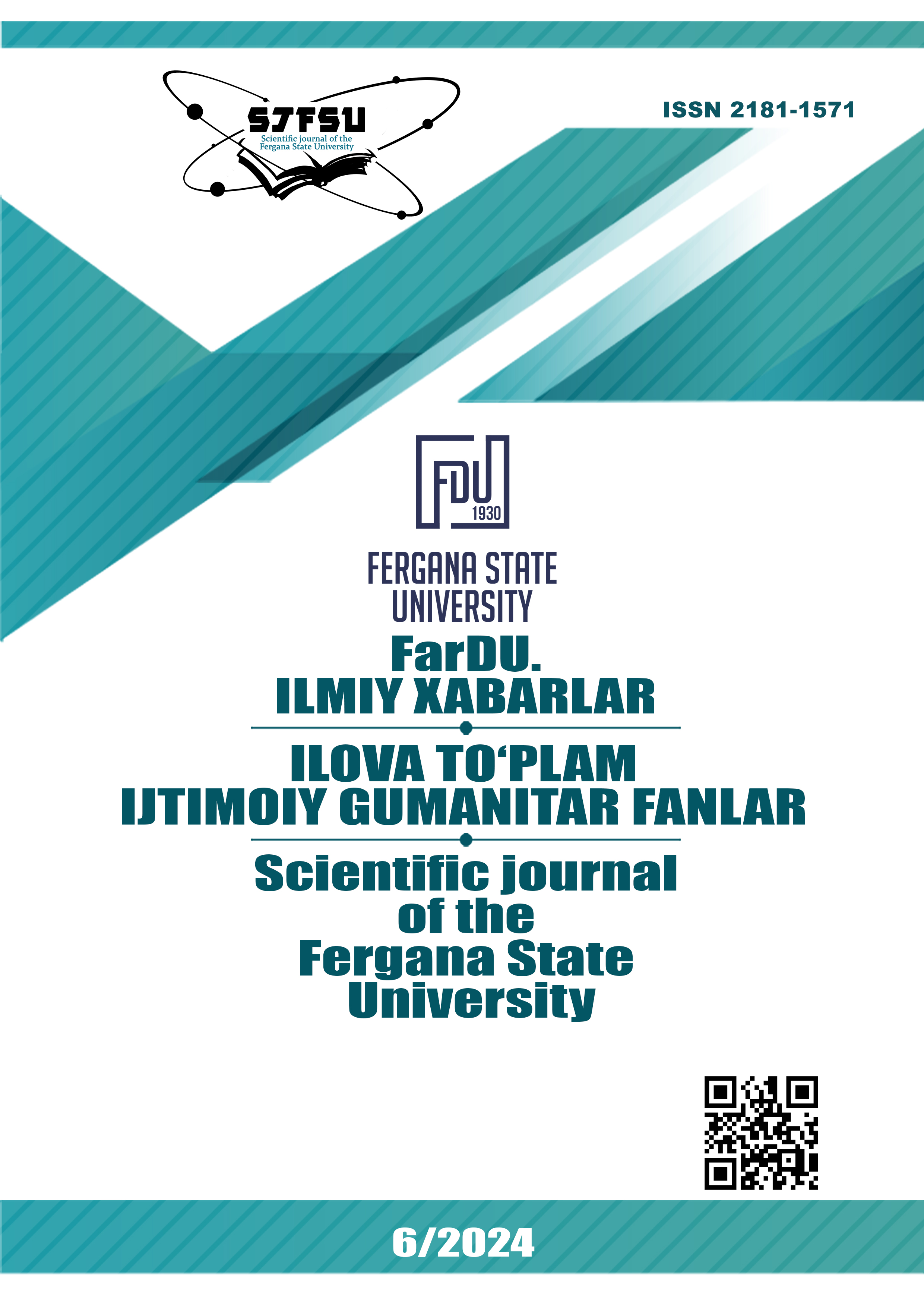THE HISTORICAL INTERPRETATION OF WOMEN’S IMAGERY IN THE LEGACY OF ZAHIRIDDIN MUHAMMAD BABUR
Keywords:
The identity of the creator, the portrayal of the author, the truth of existence, creative artistry, literary impact, societal realities, historical figures, objectivity, and aesthetic impact.Abstract
The article examines Babur’s perspective on the creative process and his approach to portraying reality, highlighting his commitment to objectively depicting the truths of life in both his memoirs and poetry. It emphasizes the significant role of women in social and domestic spheres, as well as their contributions to spiritual and educational fields, using examples of real historical figures. This focus is deliberate. Even in pre-Islamic Central Asia, women enjoyed relatively higher rights. Girls chose their husbands willingly, often setting conditions for prospective suitors to demonstrate bravery and the ability to defend the nation from adversity. These young women, representing the noble aspirations and ideals of the people, prioritized courage over appearance or wealth, testing their suitors’ valor and demanding genuine heroism in the name of love. Such portrayals of women who sought to shape their own destinies closely reflected real life.
The treasures of folklore laid the foundation for written literature, particularly influencing the depiction of women as historical figures in society and the expansive, nuanced portrayal of characters in the works of Zahiriddin Muhammad Babur. As a great king, commander, poet, and thinker, Babur drew upon these cultural elements when exploring the personalities and traits of his protagonists.
References
Bobur Zahiriddin Muhammad. Boburnoma. Toshkent, 1990.
Bobur Zahiriddin Muhammad. Devon. Toshkent, 1994.
Haqqul I. Ruboiy. Toshkent: Fan, 1976.
Humoyunnoma. Toshkent, 1959.
Mirsaydullayev M. Boburning buyuk merosi. Toshkent, 2017.
Downloads
Published
Issue
Section
License
Copyright (c) 2025 Scientific journal of the Fergana State University

This work is licensed under a Creative Commons Attribution-NonCommercial-NoDerivatives 4.0 International License.
How to Cite
Most read articles by the same author(s)
- , DURING THE COLONIAL PERIOD OF UZBEKISTAN HISTORY OF TRADE AND TRANSPORT ROUTES , Scientific journal of the Fergana State University: No. 4 (2023): Scientific journal of the Fergana State University (Exact and natural sciences)
- , ANCIENT VALUES , Scientific journal of the Fergana State University: No. 6- TOM (2023): SPECIAL ISSUE
- , INTERPRETATION OF LANGUAGE UNITS AND WORD COMBINATIONS IN UZBEK LINGUISTICS , Scientific journal of the Fergana State University: No. 3 (2024): Scientific journal of the Fergana State University. Application set (Social humanities sciences)
- Islombek Mannopov, THE PROBLEM OF ANALYSIS OF YASAVI LITERATURE , Scientific journal of the Fergana State University: No. 1 (2023): Scientific journal of the Fergana State University (Social humanities sciences)
- , , INTERPRETATION OF LOVE AND ROMANCE IN "DEVONI HIKMAT" , Scientific journal of the Fergana State University: No. 3 (2024): Scientific journal of the Fergana State University. Application set (Social humanities sciences)
- , THE PROBLEM OF THE FATE OF FAMILY AND SOCIETY IN JADID LITERATURE , Scientific journal of the Fergana State University: No. 3 (2024): Scientific journal of the Fergana State University. Application set (Social humanities sciences)
- Islombek Aslonov, BUREAUCRATIC PROBLEMS AND CASES OF EMBEZZLEMENT OF STATE PROPERTY IN THE MANAGEMENT OF AGRICULTURE IN THE UZBEK SSR DURING 1960–1980 , Scientific journal of the Fergana State University: No. 6 (2025): FarDU. Ilmiy xabarlar jurnali (Ijtimoiy gumanitar fanlar)
- Islombek Aslonov, DEVELOPMENT OF IRRIGATION AND LAND RECLAMATION SYSTEMS IN THE UZBEK SSR (1945–1980) , Scientific journal of the Fergana State University: No. 6 (2025): FarDU. Ilmiy xabarlar jurnali (Ijtimoiy gumanitar fanlar)

